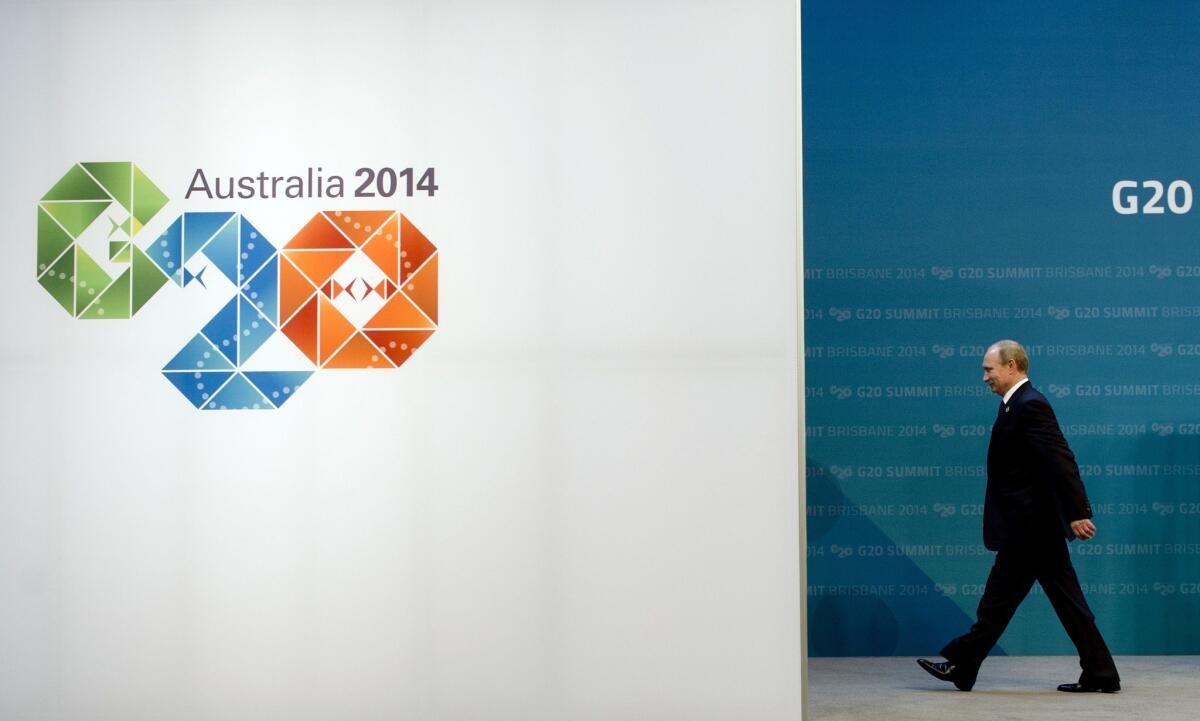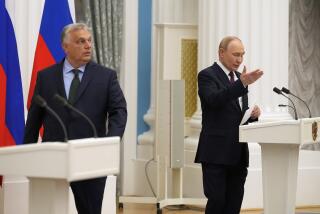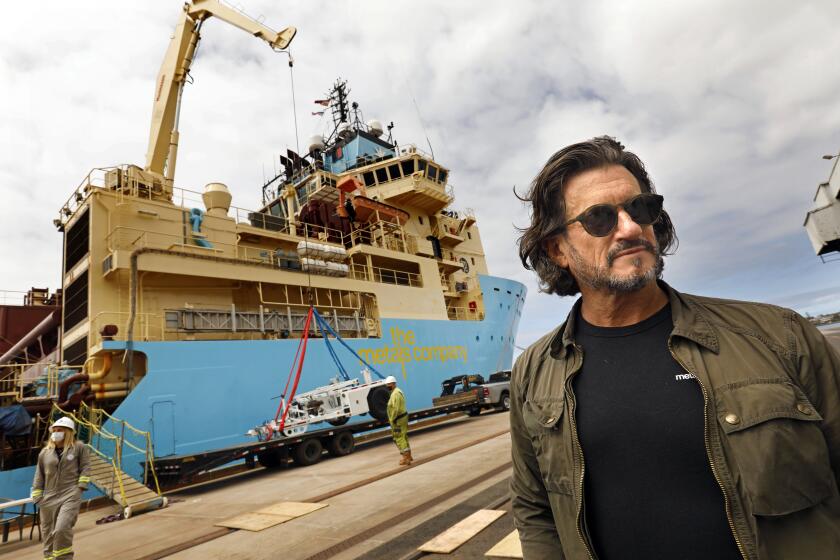Putin faces isolation at G-20 conference

Only a year ago, Russian President Vladimir Putin held court as host of the Group of 20 summit in St. Petersburg, striding confidently in the halls of the old Winter Palace and largely calling the shots on the agenda and the niceties of diplomatic protocol.
How the tables have turned. With Russia under fire for its support of separatist rebels in Ukraine, Putin has been virtually isolated in this year’s G-20 summit this weekend in Brisbane, Australia.
He’s been met by protests in the streets and some cold shoulders at the heavily fortified confines of the G-20 summit, where the usual focus on growth and jobs has been overshadowed by the ongoing crisis in Ukraine and to a lesser extent climate change.
This year’s host, Australian Prime Minister Tony Abbott, greeted Putin publicly with smiles and handshake -- despite threatening a month ago to “shirt-front” (or tackle) him over Russian complicity in the downing of a Malaysian Airlines flight over Ukraine that carried 38 Australians. But the Russian president was met at the tarmac by a relatively low-ranking official. (Obama received a similar treatment from Putin last year.)
In Brisbane, Putin was placed at the outer edge of the G-20’s so-called family photo. And on different occasions, he has gotten an earful from one world leader after another, to the point where there were reports that Putin would leave the summit before its formal conclusion Sunday. Russian officials have denied supplying arms and giving other support to the pro-Russia rebels in Ukraine.
“I guess I’ll shake your hand, but I have only one thing to say to you: You need to get out of Ukraine,” Canadian Prime Minister Stephen Harper was quoted as telling Putin face to face.
British Prime Minister David Cameron sharply criticized Russia’s involvement in Ukraine in a speech in Canberra, and the Ukraine situation was the only topic discussed between Cameron and Putin on Saturday, according to Reuters. German Chancellor Angela Merkel as well as other European leaders told reporters that they would consider additional sanctions against Russia.
Obama has been a sharp critic of Russian intervention in Ukraine. And in a speech Saturday at the University of Queensland in Brisbane, Obama called “Russia’s aggression against Ukraine ... a threat to the world.”
Obama is scheduled to meet with European leaders Sunday to discuss Ukraine as well as the free-trade negotiations between the U.S. and European Union.
Herman Van Rompuy, president of the European Council, called on Russia “to stop the inflow of weapons and troops from its territory into Ukraine. Russia must withdraw those already present.” He said EU foreign ministers would meet Monday to assess the situation.
The G-20 is made up of the largest advanced and developing nations that together account for 85% of the world’s economy. Although the G-20 is intended to be the top international forum for steering the global economy, geopolitics and other issues often have overshadowed the gatherings.
Ban Ki-moon, the United Nations secretary-general, said Saturday that the crisis in Ukraine was very much an economic issue as well.
“The continuing conflict and tensions and violence in that southeastern area of Ukraine is not helpful at all, not only for world peace and security, but world economy,” he said during a news conference in Brisbane. “This has global implications in all aspects,” he said. “Therefore I urged leaders, particularly the United States and European and Russian leaders, who are sitting together in G-20, to also discuss this matter on the margins of this G-20 meetings.”
More to Read
Sign up for Essential California
The most important California stories and recommendations in your inbox every morning.
You may occasionally receive promotional content from the Los Angeles Times.






